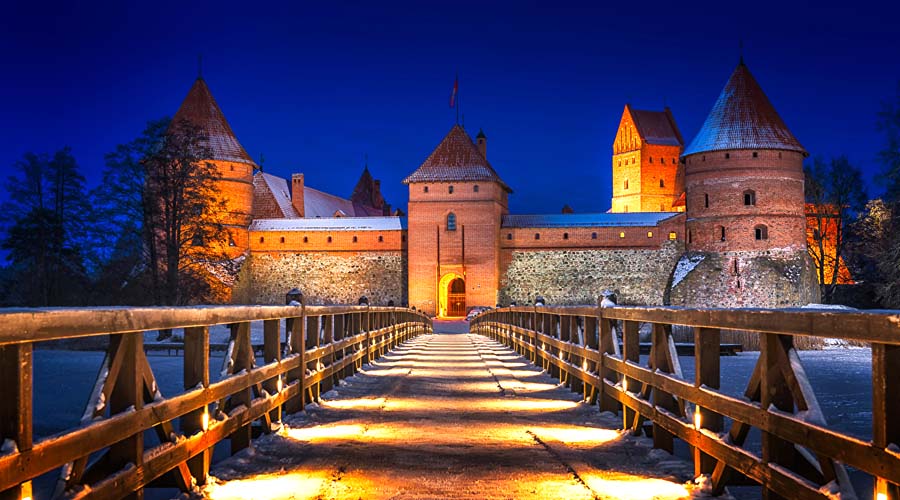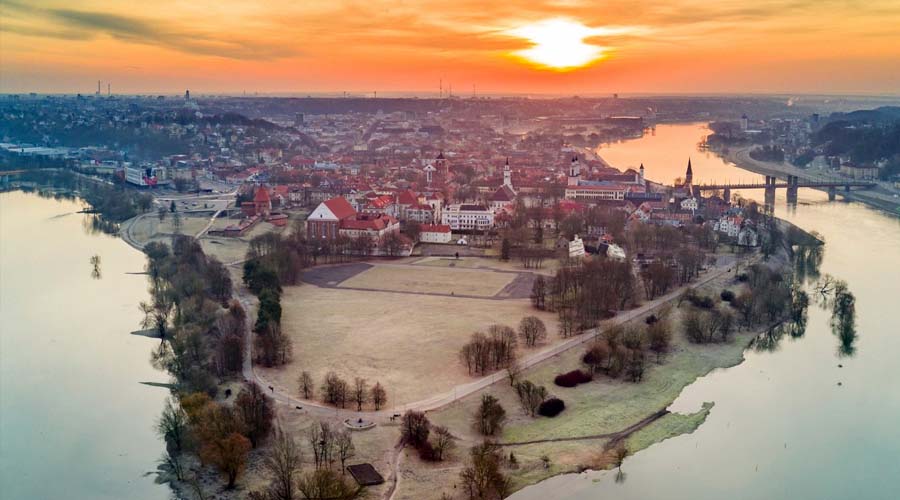- Capital and largest City: Vilnius
- Lithuanians are one of the ethnic groups in the Baltic region. While Lithuania has a population of about 2 944 459 people,
- The native language is Lithuanian, one of two living Baltic languages. An interesting fact about the language is that as far back as the beginning of the 19thcentury people noticed that Lithuanian was very similar to Sanskrit. Linguists around the world are still fascinated that the Lithuanian language has retained features of this ancient language and it hasn’t really simplified much.
Lithuania

- Lithuania is at a crossroad between west and east Europe, and throughout its complicated history has developed a unique culture, which encompasses both deep respect for traditions and robust wish to learn and innovate.
- We are members of EU and NATO, and are among the most bilingual and educated nations in Europe, however costs of living here are lower than in western countries, which makes Lithuania great for tourism, education or business.
- Lithuanian people are simple, calm and can be somewhat shy with foreigners, but friendly and good-intended when you get to know them.
- We are keen to share our experience and the way of life with the rest of the world
- In terms of religion, most Lithuanians are Roman Catholic
- Boarders: Latvia, Belarus, Poland and Russian exclave of Kaliningrad Oblast
- Currency: Euro
- National Sports: Basketball
International Airports
There are international airports in Vilnius, Kaunas and Palanga. They offer a wide range of flights and are expanding their destinations every year. There are buses that constantly commute between the airports (including Riga airport).
Education Systems
- Each study program is evaluated according to the European Credit Transfer System (ECTS), with each year of study being awarded 60 ECTS credits.
- University degrees are offered in three cycles: the first cycle is under graduate (Bachelor), the second cycle is graduate (Master, and/or specialised professional studies), and the third one is postgraduate (Doctoral; residency; postgraduate in the Arts).
- During the first cycle, you can choose to study for a Bachelor’s degree and/or a professional qualification for which you will need to have obtained 180 – 240 ECTS. When you successfully complete the course, with or without a professional qualification you receive a Bachelor’s Diploma. If you only want to study for the professional qualification, then you will receive a Higher Educational Diploma.
- Bachelor degrees and professional qualifications are offered at universities; professional qualifications, but not degrees, can be taken at colleges.
Monthly Expenses
- Most foreign students say that 350-400 EUR is enough to live off for a month..
- It really depends on how much you want to travel and go out, but our night clubs, pubs, museums and other attractions are less expensive than the ones found elsewhere in Europe.
A day menu at most restaurants will cost from 3 to 5 EUR, a cinema ticket – up to 6 EUR, ten minutes at a local carting track – 10-12 EUR
Intakes and Semesters
- The academic year starts in September and ends in mid-June
- Divided into two semesters (September and February) spring and autumn.
Process and procedures for Lithuanian Student Visa
- Counseling
- University /Course selection
- Document Submission
- Application process
- Conditional/ Unconditional Offer letter
- Pay the tuition fees
- University tuition Contract
- Visa Counseling
- Visa Interview Appointment
- Visa document submission + personal interview
- Visa Approval
- Pre Departure Briefing
- Foreign Currency Exchange /Ticketing
- Post landing Assistance: Airport Pick up and Accommodation arrangements


